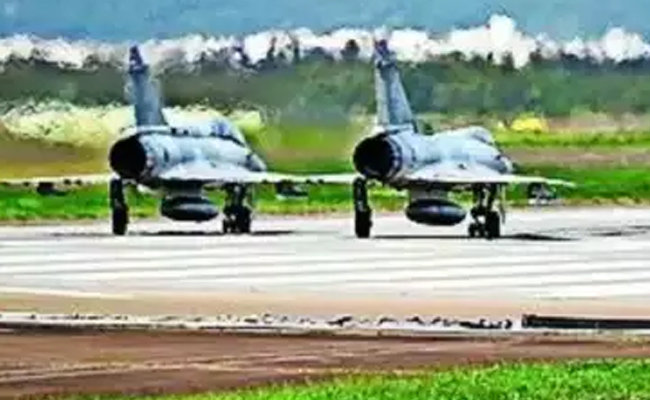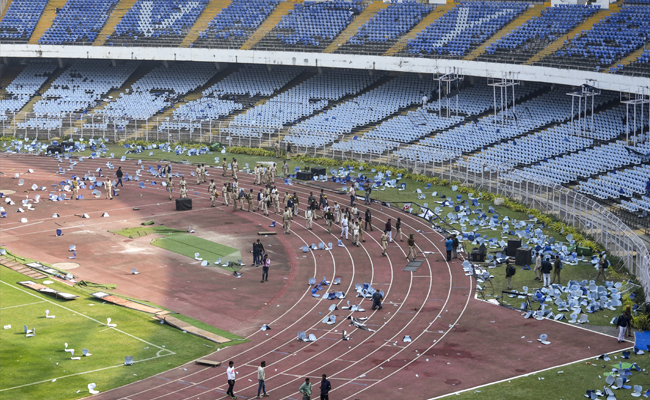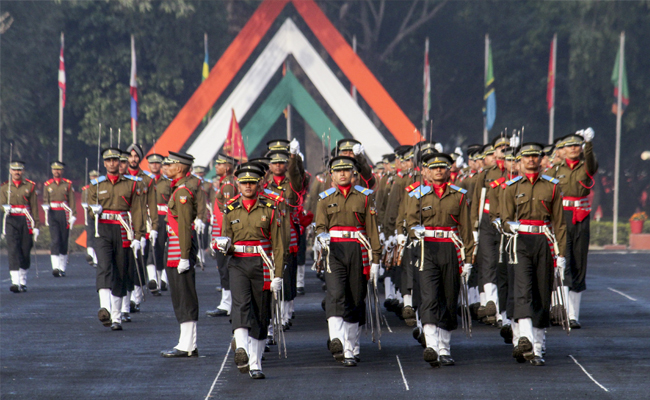Beijing: Pakistan is planning to procure 40 advanced Chinese stealth fighter jets, J-35, marking a potential milestone as China's first export of its fifth-generation fighter aircraft. The acquisition is expected to enhance Pakistan's air capabilities amidst regional tensions with India, according to the South China Morning Post.
The Hong Kong-based publication cited reports from Pakistan suggesting that the Pakistan Air Force (PAF) has approved the purchase. These jets, slated for delivery within two years, aim to replace the ageing fleet of American F-16s and French Mirage fighters.
Despite Pakistan's ongoing economic crisis, the decision reflects its strategic defence priorities. However, there has been no official confirmation from Chinese authorities or media about the deal. Speculation arose following the display of the J-35 at Zhuhai's prestigious air show last month, which was attended by senior PAF officials.
The J-35 is primarily designed for Chinese aircraft carriers, but its land-based version, the J-31, has been reportedly under consideration. In January, PAF Chief Air Marshal Zaheer Ahmed Baber Sidhu noted that groundwork for acquiring the J-31 had already been established.
China and Pakistan maintain a close military partnership, with Beijing aiding Pakistan's defence modernisation across its armed forces. This includes the joint development of the J-17 Thunder fighter jet, which forms the backbone of the PAF, and the delivery of advanced naval frigates for operations in the Indian Ocean and Arabian Sea.
These developments come amid heightened bilateral defence cooperation following Chinese General Zhang Youxia’s visit to Pakistan last month. Gen Zhang, Vice Chairman of the Central Military Commission, held talks with Pakistan's Army Chief Gen Asim Munir on regional security and stability.
The visit also saw 300 Chinese troops participating in counter-terrorism drills in Pakistan. Beijing has reportedly urged Islamabad to allow Chinese security firms to protect Chinese workers involved in the China-Pakistan Economic Corridor (CPEC) projects, amid increasing attacks by militant groups. However, Pakistan has resisted such moves over sovereignty concerns, opting instead to deploy over 30,000 personnel for their protection.
Let the Truth be known. If you read VB and like VB, please be a VB Supporter and Help us deliver the Truth to one and all.
New Delhi (PTI): Police here have busted a crime syndicate involved in traffic fraud and extortion, arresting three people including the alleged mastermind who sold fake stickers to help commercial vehicles bypass no-entry restrictions, an official said on Saturday.
The police said they dismantled a third organised syndicate linked to traffic-related frauds, with the arrest of Rinku Rana alias Bhushan, his associate Sonu Sharma and Mukesh Kumar alias Pakodi, who was also connected to another extortion syndicate.
According to the police, Rinku Rana was running a well-organised network that facilitated the movement of commercial goods vehicles during restricted hours by selling fake 'marka' or stickers for Rs 2,000 to Rs 5,000 per vehicle every month. The stickers were falsely projected as authorisation to evade traffic challans.
During raids, the police recovered Rs 31 lakh in cash, property documents worth several crores of rupees, over 500 fake stickers and six mobile phones allegedly used to operate the syndicate.
The crackdown followed a complaint filed by a traffic police officer in April this year after a commercial vehicle tried to evade checking by producing a fake sticker claiming exemption from enforcement action.
Investigation revealed that social media groups were being used to coordinate the illegal movement of vehicles and alert drivers about traffic police checkpoints, police said.
"A parallel system was being run to cheat drivers and vehicle owners while undermining traffic enforcement. On the basis of evidence, provisions related to organised crime under the BNS were invoked," a senior police officer said.
Sonu Sharma, the police said, managed social media groups through which stickers were sold and real-time alerts were circulated regarding traffic police movement. He also acted as a link between Rana and drivers operating in the field.
In a related development, Mukesh Kumar alias Pakodi, an associate of Rajkumar alias Raju Meena, who was earlier arrested under the Maharashtra Control of Organised Crime Act (MCOCA), was also apprehended.
Mukesh allegedly helped extort money from transporters and was involved in blackmailing traffic police personnel by recording enforcement actions, the police said.
Investigators alleged the syndicate led by Rajkumar deployed drivers to deliberately violate traffic rules and secretly record police officials during challans, later using manipulated videos to extort money under threat of false allegations.
The police said that in total, eight accused belonging to three different organised crime syndicates linked to traffic frauds and extortion have been arrested so far.
Further investigation is underway to trace the remaining members, conduct financial probes, and analyse digital evidence recovered during the raids, officials added.





